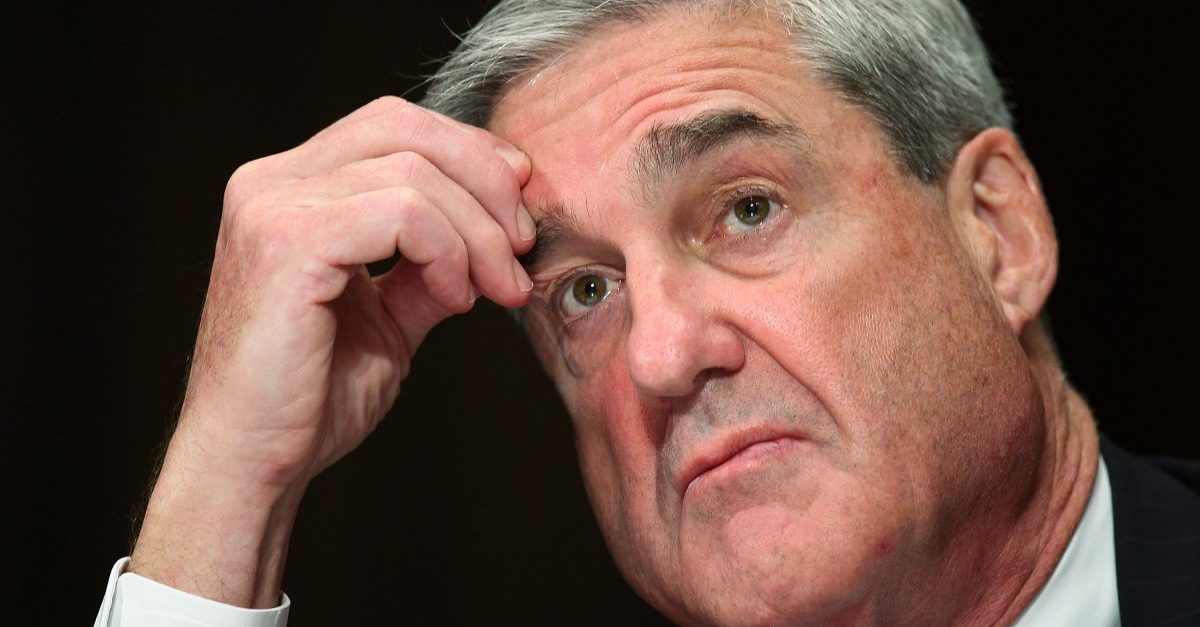
Special Counsel Robert Mueller‘s mystery opponent, recently revealed to be a foreign company owned by a foreign country, previously filed a supplemental brief supporting its petition for a writ of certiorari, in an effort to get the U.S. Supreme Court to review the D.C. Circuit court’s order to comply with a grand jury subpoena. That supplemental brief was made public on Monday afternoon, but with no clues as to the country and/or company we are dealing with here.
There were, however, accusations of hypocrisy lobbed at America by “Country A’s” Alston & Bird attorneys, Edward T. Kang and Brian D. Boone.
What this boils down to: there is an ongoing dispute over jurisdiction and the Foreign Sovereign Immunities Act (FSIA). In short, “Country A”/company is arguing that it should be exempt from complying with the subpoena in the U.S., while the American courts are concerned that this would allow, for instance, a foreign country/company to act inside the U.S. with impunity.
The unnamed corporation has argued that it couldn’t comply with the subpoena because it is “unreasonable and oppressive […] because it would require the Corporation to violate Country A’s law.”
“The Grand Jury seeks information from a corporation (‘the Corporation’ owned by Country A. After receiving a subpoena for that information, the Corporation moved to quash claiming (1) that it is immune under the Foreign Sovereign Immunities Act (“the Act”) [FSIA] and (2) that the subpoena is unenforceable as unreasonable and oppressive under Federal Rule of Criminal Procedure 17(c)(2) because it would require the Corporation to violate Country A’s domestic law,” a prior filing on the matter read.
The U.S. District Court didn’t buy this argument and said the company “has fallen well short of carrying [the] burden” of proving its position.
“The text of the foreign law provision the Corporation relies on does not support its position,” the judges said. “Consequently, we are unconvinced that Country A’s law truly prohibits the Corporation from complying with the subpoena.”
The company was thereby held in contempt and was slapped with monetary penalties to accrue as long as it did not comply with the subpoena — to the tune of $50,000 a day. “Country A,” however, sought a stay and Chief Justice John Roberts agreed to a temporary stay, before putting the company back in contempt.
On Monday, the company said the lower court’s finding on FSIA exceptions were an example of America saying, “Do as I say but not as I do,” as the U.S. has argued in the past that sovereign countries should not be subjected to foreign criminal jurisdiction. The lower court ruled that FSIA’s commercial-activity exception meant that company had to comply with the subpoena.
“Country A” clearly doesn’t see it that way, and its American lawyers cut to the chase, outlining five problems it sees with the D.C. Circuit’s ruling:
On January 8, the D.C. Circuit issued an opinion elaborating on its December 18 judgment. Supp. App. 1a. The opinion confirms that, through its judgment, the DC. Circuit (1) became the first American appellate court to exercise subject-matter jurisdiction under 18 U.S.C. 3231 in an action against a foreign state, (2) deepened a circuit split on whether the FSIA categorically immunizes foreign states from American criminal jurisdiction, (3) cemented a separate circuit split on whether the FSIA (through 28 U.S.C. 1330(a)) is the exclusive basis for subject-matter jurisdiction in an action against a foreign state, (4) parted ways with its sister circuits (including the Sixth Circuit) by holding that the exceptions to jurisdictional immunity apply outside of § 1330 (a)’s jurisdictional limits, and (5) confirmed that the courts of appeals are divided on whether an American court can order contempt sanctions (monetary or non-monetary) against a foreign state.
The lawyers go on to argue that if the D.C. Circuit’s ruling were “left to stand” this would “create chaos in the international community, possibly alienating American allies, undermining diplomacy, and all but guaranteeing that American agencies and instrumentalities will (despite their protestations) face criminal proceedings abroad.”
They accuse the court of flying in the face of long-standing international laws and norms.
“The United States has rejected the International Criminal Court as a threat to America’s sovereign immunity from foreign criminal jurisdiction. With the decision below, America has said to the world, ‘Do as I say, not as I do,'” they said, arguing that these are “among the most important [FSIA] questions” the court could decide.
At the very end was one more parting shot to the American justice system.
“In the world stage, the United States has argued with the force of history that one foreign sovereign may not exercise criminal jurisdiction over another. The courts below have now cast doubt on America’s commitment to that longstanding rule,” they concluded.
“Country A” accus… by on Scribd
[Image via Alex Wong/Getty Images]